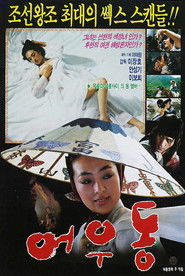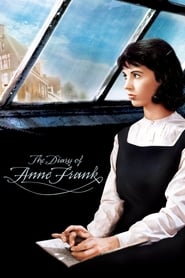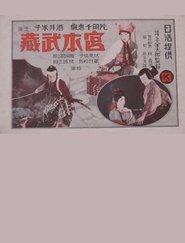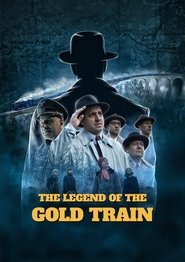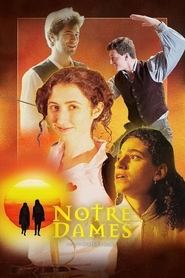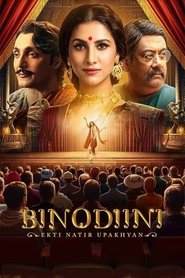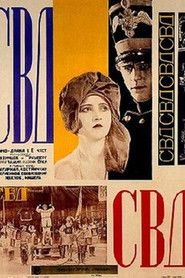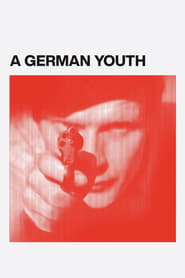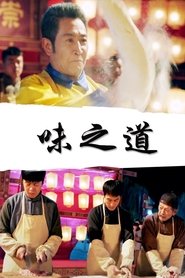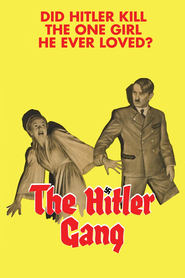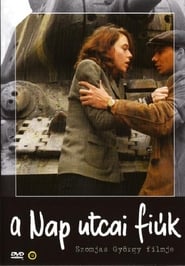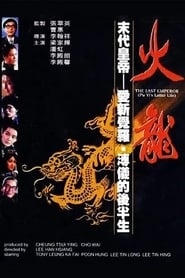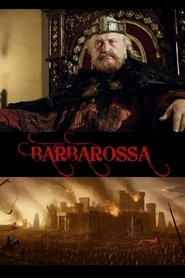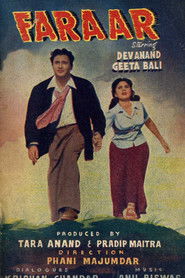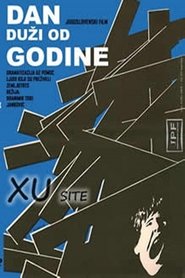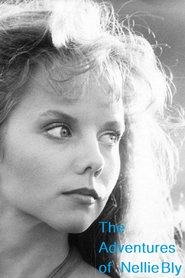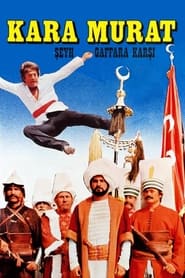Popular History Movies on Pantaflix - Page 177
-
Er Woo Dong: The Entertainer
1985
star 4.8Er Woo Dong translates to "entertainer," a rough approximation of the duties of 14th-century Korean courtesan Er Yoon Chang. After a lifetime "in service," Er Yoon Chang retires to a faraway village. Meanwhile, her powerful father, ashamed of his daughter's lifestyle, dispatches an assassin to do her in. Er Yoon Chang is protected by her faithful deaf-mute bodyguard, but only up to a point. -
The Diary of Anne Frank
1959
star 7.2The true, harrowing story of a young Jewish girl who, with her family and their friends, is forced into hiding in an attic in Nazi-occupied Amsterdam. -
Miyamoto Musashi
1929
-
The Legend of the Gold Train
2022
In the endgame of WWII a few hundred bank employees and their family members rescued Hungary's entire gold reserves on a train from the Soviet army and were hiding it in a small Austrian village until the end of the war. -
Chain
2014
Chain
2014
star 6.5A girl and a boy meet by a chance in unaware of consequences on one day. A modern parable inspired by true events. -
Notre Dames
2024
Notre Dames
2024
In 17th c. France, a bisexual swashbuckling swordswoman must rescue her ex from a convent after they're caught in an illicit affair. -
Binodiini - Ekti Natir Upakhyan
2025
Binodini Dasi, a prostitute, who has a knack for theatre, manages to garner a lot of attention because of her performances. -
The Club of the Big Deed
1927
star 5.2The film tells about the Decembrists’ revolt in the south of Russia. Right before the Decembrist Revolt 1825 a chevalier of fortune decides that it's time for a game. But on whom to make a bet? He asks the cards. But he's not the only one who makes the choice. -
A German Youth
2015
A German Youth
2015
star 7.1At the end of the 1960s the post-war generation began to revolt against their parents. This was a generation disillusioned by anti-communist capitalism and a state apparatus in which they believed they saw fascist tendencies. This generation included journalist Ulrike Meinhof, lawyer Horst Mahler, filmmaker Holger Meins as well as students Gudrun Ensslin and Andreas Baader. -
The Taste of Life
2018
The Taste of Life
2018
star 8The story of a young rascal with a tough past who enters a house of generational chefs and learns to cook authentic Shandong cuisine. -
The Hitler Gang
1944
The Hitler Gang
1944
star 6The Hitler Gang adopts the style of a gangster film as it charts Adolf Hitler’s rise from small-time politico to dictator of Germany. -
The Sun Street Boys
2007
The Sun Street Boys
2007
star 6Some of the most symbolic moments of the 1956 Revolution in Hungary were the tooth-and-nail battles fought by the so-called 'Pest Lads' who dared to defy odds by taking on the panzers of one of the world's superpowers. The story begins on October 23rd, 1956 and ends on November 4th of the same year. Juli is Totya's girlfriend but also loves Gábor. Their love triangle will have to endure the trials and tribulations of these stirring times. A group of boys living in the outskirts of the capital are playing football in abandoned lot when Juli, a ticket inspector, brings news of protests breaking out in the city. Only Gábor accompanies her into town and together they become part of this historical event. At dawn, when the boys too come under fire from Soviet forces, they decide to join in the fight. -
Magistrate of the Floating World
1981
star 6Kodaira Mochizuki has come from Edo to keep Horisoto secure. -
Abar Asbo Phire
2004
Abar Asbo Phire
2004
It revolves around a romantic story rooted deeply in an incident of the lead character Ananda’s previous life. Trapped in between two timelines, the story delves into a period when a bunch of youngsters was ready to sacrifice their lives for India’s freedom. Sadly, the treachery of one destroyed their dreams and ended their lives. -
The Last Emperor
1986
The Last Emperor
1986
A 1986 film directed by Li Han-Hsiang. Nominated for Best Film in the 6th annual Hong Kong Film Awards. -
Barbarossa
2009
Barbarossa
2009
star 5.3Year 1100. Italy.The Northern lands are ruled by a German emperor: Fredrick aka "Barbarossa. His dream is to conquer also the lands in the Center and in the South so as to revive the Empire that was once of the one Charles Magno.But in the North a young man from Milan has formed an army of 900 young men coming from different cities: the "company of death". This young man's name is Alberto Da Giussano. His dream is to defeat the Emperor and to give back freedom to the Northern lands. -
Faraar
1955
Faraar
1955
A group of freedom-fighters face betrayal and go on the run from police in British-occupied Hindustan. -
A Day Longer Than a Year
1971
star 5.7The film tells of devastating earthquake in Banja Luka in 1969 and follows a group of prisoners in prison during devastating earthquake and people and residents of Banja Luka. Fate of prisoners,the fate of the city and residents of Banja Luka, are light motive of this movie. -
The Adventures of Nellie Bly
1981
star 3A "Classics Illustrated" account of pioneer female journalist Nellie Bly, who became a legend through her exposes of corruption and inhumane conditions in New York of the 1880s in "The New York World." -
Karamurat
1976
Karamurat
1976
star 4.2Karamurat, a fearless Janissary agent serving Sultan Mehmed, is sent in 1456 to the rebel province of Minchionia to uncover the secret behind the tyrant Mustafa’s power, rumored to stem from a hypnotic “white powder” imported from China.
 Netflix
Netflix
 Amazon Prime Video
Amazon Prime Video
 Apple iTunes
Apple iTunes
 Apple TV Plus
Apple TV Plus
 Disney Plus
Disney Plus
 Google Play Movies
Google Play Movies
 Paramount Plus
Paramount Plus
 Hulu
Hulu
 HBO Max
HBO Max
 YouTube
YouTube
 fuboTV
fuboTV
 Peacock
Peacock
 Peacock Premium
Peacock Premium
 Amazon Video
Amazon Video
 The Roku Channel
The Roku Channel
 AMC+
AMC+
 Kocowa
Kocowa
 Hoopla
Hoopla
 The CW
The CW
 Vudu
Vudu
 Starz
Starz
 Showtime
Showtime
 PBS
PBS
 Pantaflix
Pantaflix
 FXNow
FXNow
 Tubi TV
Tubi TV
 Kanopy
Kanopy
 Comedy Central
Comedy Central
 Crunchyroll
Crunchyroll
 Microsoft Store
Microsoft Store
 Redbox
Redbox
 Sun Nxt
Sun Nxt
 ABC
ABC
 DIRECTV
DIRECTV
 Crackle
Crackle
 Fandor
Fandor
 Plex
Plex
